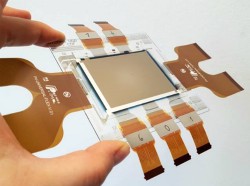Novel catalyst materials for molecular electrochemistry
Being a branch of physical chemistry, molecular electrochemistry involves the design of new catalysts for activating molecular systems. The field aims to elucidate molecular properties and chemical reactions, and to establish reaction mechanisms and synthesis of the desired products. The EU-funded training network ELETRONANOMAT (Molecular scale electrochemistry and nontraditional electrochemical materials science) brought together early-stage and experienced Chinese and European researchers to study new materials for use in catalysis. The network combined expertise in electrochemistry, chemical synthesis, surface characterisation and scanning probe technology. Researchers placed focus on materials with extraordinary properties such as graphene, metallic or semiconductor nanoparticles, photo-active composite materials and ionic liquid media prepared by tailored chemical synthesis. The research helped gain rich understanding of electronic and transport properties of the new materials either separately or in combination with biomolecules. ELETRONANOMAT offered an excellent pathway to develop international collaboration on molecular electrochemistry. Results were published in numerous publications in peer-reviewed journals and presented at international conferences.







